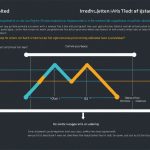The Internet as a Catalyst for UK Computing Advancements
The rapid adoption of high-speed internet has fundamentally transformed the landscape of computing technologies in the UK. Internet-driven computing serves as the backbone that supports the dynamic evolution of UK technology, fostering digital innovation across multiple sectors. This enhanced connectivity enables faster data exchange and seamless integration of cutting-edge technologies, triggering a cycle of continuous advancement.
One of the most significant effects of digital connectivity is its acceleration of developments in Artificial Intelligence (AI), the Internet of Things (IoT), and cloud computing. AI algorithms rely heavily on vast datasets transmitted and processed over high-speed networks, allowing UK researchers and industries to innovate more efficiently. Similarly, the proliferation of IoT devices in smart homes, healthcare, and transportation depends on robust internet infrastructures that facilitate real-time communication and control.
Topic to read : How Can Internet Advancements Help Bridge the Digital Divide?
Cloud computing growth, another vital component of the UK technology evolution, is propelled by the availability of reliable and fast internet access nationwide. This widespread connectivity enables organizations to shift from traditional data centers to scalable cloud platforms, promoting flexibility and cost-efficiency in IT operations.
Together, these elements create the foundations of a digitally advanced UK economy, positioning the country as a competitive force in global technology markets. The Internet’s role is pivotal—not merely as a tool but as the essential catalyst that powers the continuous innovation cycle fueling today’s computing breakthroughs.
Also to read : How are UK businesses leveraging cloud computing for digital transformation?
Key Areas of Technological Transformation
The internet-driven computing landscape in the UK serves as a critical enabler for advancements in Artificial Intelligence, Internet of Things (IoT), and cloud computing UK. High-speed internet has not only facilitated the expansion of these technologies but also enhanced their integration, enabling sophisticated applications that drive the UK technology evolution forward.
In the realm of Artificial Intelligence, digital infrastructure powered by reliable internet connectivity allows UK researchers and enterprises to process large datasets efficiently. This capability accelerates AI development and deployment, supporting innovations such as natural language processing, machine learning models, and autonomous systems across various sectors. The role of the internet is pivotal as it enables seamless data exchange and remote collaboration, essential for iterative AI improvement.
The proliferation of the Internet of Things is closely linked to advances in digital infrastructure, with smart sensors and connected devices forming the backbone of modern smart cities, healthcare monitoring, and industrial automation. Enhanced internet connectivity ensures real-time data transmission and control, which are vital to IoT’s operational effectiveness and scalability within the UK.
Cloud computing growth in the UK similarly depends on widespread, robust internet access. Nationwide digital connectivity allows organizations to adopt scalable cloud services, benefiting from enhanced computational resources without maintaining physical data centers. This shift to cloud platforms supports flexible IT operations and cost-effective innovation, fueling the broader digital economy.
Together, these technology domains form the foundation of a digitally advanced UK economy. The UK technology evolution is sustained by ongoing improvements in internet-driven computing, which continue to stimulate digital innovation and redefine the country’s technological capabilities on a global scale.
The Internet as a Catalyst for UK Computing Advancements
High-speed internet acts as a fundamental enabler for the UK’s computing advancements, powering the internet-driven computing paradigm that underlies the country’s ongoing technology evolution. By providing robust, fast, and reliable digital connectivity, it accelerates breakthroughs in emerging fields such as artificial intelligence, the Internet of Things, and cloud computing. These technologies rely heavily on seamless data transfer and real-time communication, capabilities made possible by an advanced internet infrastructure.
Digital innovation flourishes when companies, researchers, and public institutions can leverage high-speed networks to share vast datasets and computing resources instantly. This level of connectivity allows iterative improvements in AI algorithms, the deployment of IoT devices within smart environments, and the migration towards cloud platforms that scale dynamically with demand. As the fabric connecting people and machines, internet-driven computing creates a fertile environment for experimentation and rapid iteration.
Together, these dynamics form the foundations of a digitally advanced UK economy. The country’s position as a global technology leader depends on how effectively its digital infrastructure supports ongoing innovation cycles. Simply put, without widespread and high-quality internet access, the UK’s ambitions in tech development and digital innovation would face fundamental limits. The internet is the catalyst transforming potentials into realities, sustaining the momentum behind the UK’s computing advancements.
The Internet as a Catalyst for UK Computing Advancements
High-speed internet has been a transformative force driving the UK technology evolution by enabling internet-driven computing that supports cutting-edge digital innovation. The availability of fast, reliable digital connectivity accelerates the development of new computing technologies, particularly in sectors such as artificial intelligence, the Internet of Things, and cloud computing. These advancements depend heavily on seamless data transmission and real-time communication, which only a robust internet infrastructure can provide.
The influence of high-speed internet extends beyond simple connectivity; it creates an environment where iterative improvements in AI algorithms become feasible through shared large-scale datasets. This same digital backbone allows IoT devices to function cohesively within smart environments, transmitting data instantaneously to optimize operational efficiency and responsiveness. In cloud computing, fast internet makes scalable and on-demand resource allocation possible, offering businesses agility and cost savings while fostering innovation across industries.
Together, these elements represent the foundations of a digitally advanced UK economy, where internet-driven computing acts as a catalyst transforming technological potential into tangible economic growth. By underpinning the flow of information and enabling collaborative innovation, digital connectivity ensures the UK remains at the forefront of global technology trends and sustains its leadership in digital innovation.
The Internet as a Catalyst for UK Computing Advancements
High-speed internet significantly influences the development of new computing technologies by providing the essential connectivity required for advanced data processing and communication. Within the UK, this digital linkage accelerates the pace of innovation in key areas such as artificial intelligence, the Internet of Things, and cloud computing. These fields heavily depend on continuous, reliable data exchange enabled by high-quality internet infrastructure.
How does internet-driven computing impact the UK technology evolution specifically? It creates an ecosystem where digital innovation becomes scalable and integrated, allowing AI models to be trained on vast datasets and IoT devices to transmit real-time information across networks seamlessly. Cloud computing benefits, too, by leveraging scalable computing resources distributed via the internet, enabling businesses and public sectors to reduce costs while improving agility.
This combination establishes the foundations of a digitally advanced UK economy, characterized by rapid innovation cycles and enhanced competitiveness in global markets. The interplay between digital connectivity and these emerging technologies underlines the central role of internet-driven computing as the catalyst propelling the UK’s ongoing technology evolution forward.






